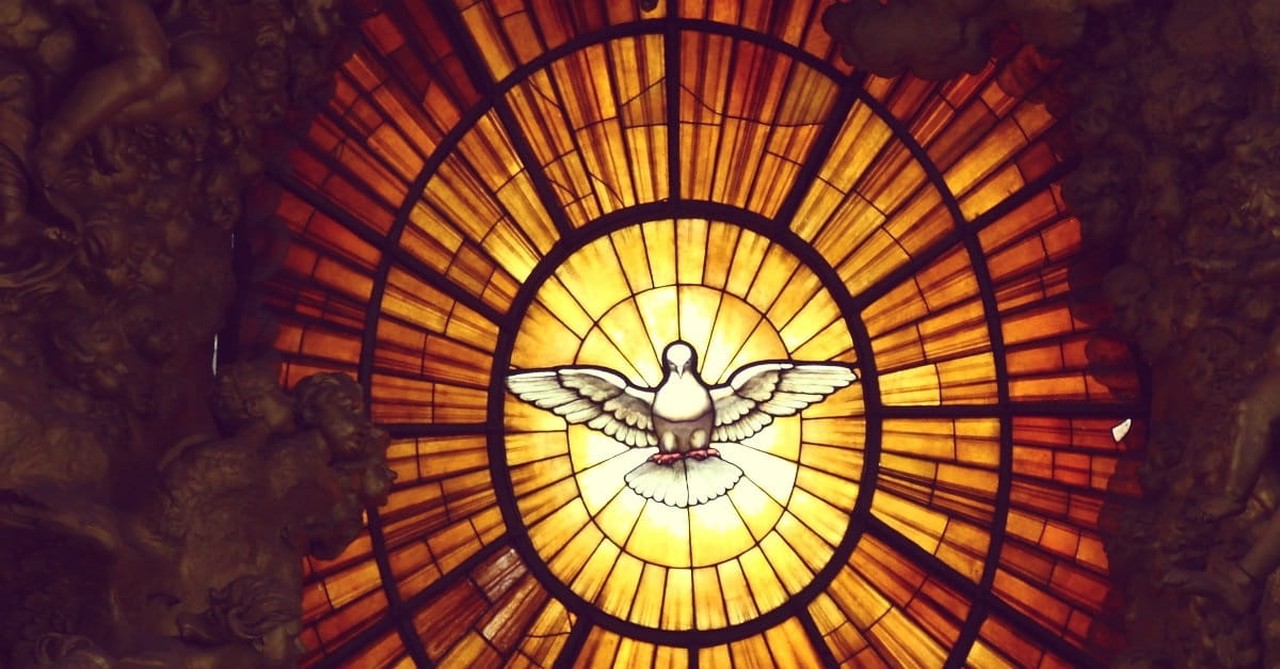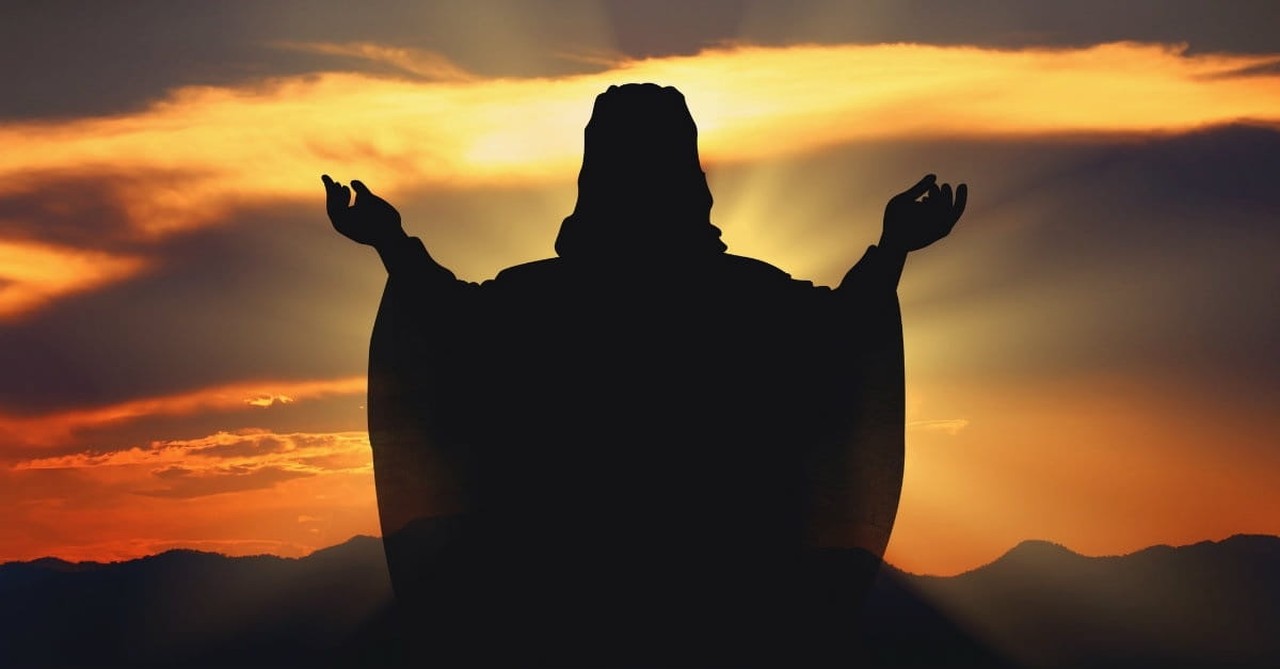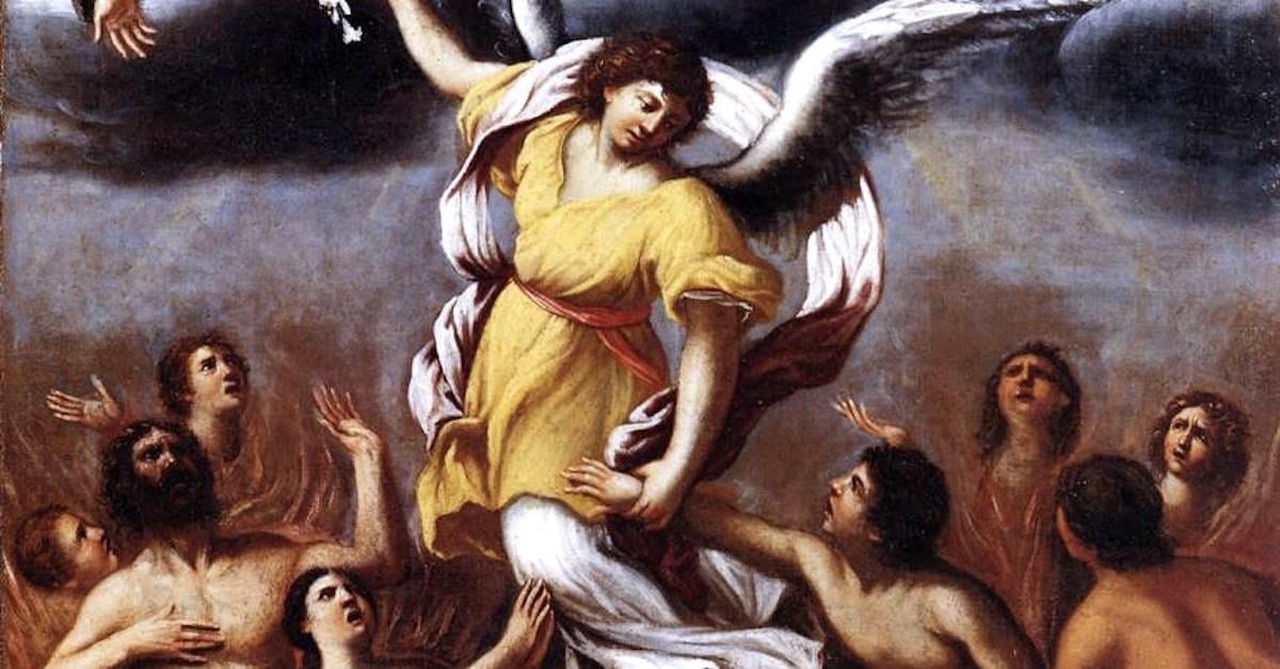10 Things You Should Know about the Intermediate State of Death

When a Christian dies, he/she enters immediately into what theologians call the intermediate state. It is called “intermediate” because it is what we experience in between the time of our earthly lives (now) and the time when we receive our glorified and resurrected bodies.
I could have as easily entitled this post: ten things you should know about what happens when a Christian dies. So what happens when a Christian dies? The simple answer is that he/she enters immediately into what theologians call the intermediate state. It is called “intermediate” because it is what we experience in between the time of our earthly lives (now) and the time when we receive our glorified and resurrected bodies.
So here are ten things to keep in mind when pondering the intermediate state.
Photo Credit: ©Pexels
1. When we die, the Bible promises us a "building" from God.

1. When we die, the Bible promises us a "building" from God.
SLIDE 1 OF 10
Paul says in 2 Corinthians 5:1 that when we die “we have a building from God, a house not made with hands, eternal in the heavens.” What is this “building” from God?
Is it heaven itself, or an abode in heaven (cf. John 14:2), perhaps even the New Jerusalem.
Others say it refers to the body of Christ, i.e., the church.
On the other hand, it may be a reference to an intermediate body, i.e., a bodily form of some sort suitable to the intermediate state but different from and only preparatory to the final, glorified, resurrected body (cf. Matthew 17:3; Revelations 6:9-11).
The fourth option is to see here a reference to the glorified, resurrection body, that final and consummate embodiment in which we will live for eternity.
Photo Credit: ©Unsplash
2. Paul talks about this "building" as something permanent, but not necessarily immediate.

2. Paul talks about this "building" as something permanent, but not necessarily immediate.
SLIDE 2 OF 10
The major objection to this view is Paul's use of the present tense, “we have a building from God” (not “we shall have”). This seems to imply that immediately upon death the believer receives his/her glorified body. But this would conflict with 1 Corinthians 15:22ff.; 1 Corinthians 15:51-56; and 1 Thessalonians 4-5, all of which indicate that glorification occurs at the second advent of Christ. However, frequently in Scripture a future reality or possession is so certain and assured in the perspective of the author that it is appropriately spoken of in the present tense, i.e., as if it were already ours in experience. Thus Paul's present tense “we have” most likely points to the fact of having as well as the permanency of having, but not the immediacy of having. It is the language of hope.
Photo Credit: ©GettyImages
3. There seems to be a conscious state between death and general resurrection.

3. There seems to be a conscious state between death and general resurrection.
SLIDE 3 OF 10
The intermediate state is consciously experienced by those who have died (see 2 Corinthians 5:6-8; Phillipians 1:21-24; Revelations 6:9-11). It is clear that the deceased believer has “departed” to be “with Christ” (Phillipians 1:23) and is therefore “with” Christ when he comes (1 Thessalonians 4:17). It would seem, then, that some kind of conscious existence obtains between a person's death and the general resurrection (this is why we refer to this time as the intermediate state).
Photo Credit: ©Unsplash
4. Paul suggests a three-fold perspective.

4. Paul suggests a three-fold perspective.
SLIDE 4 OF 10
Paul’s language in 2 Corinthians 5 suggests this three-fold perspective: It is good to remain alive on this earth to serve Christ (see Philippians 1:21-26). On the other hand, it is better to die physically and enter into the presence of Christ (see 2 Corinthians 5:6-8; Philippians 1:21b, 23). However, it is by far and away best to be alive when Christ returns, for then we avoid death altogether and are immediately joined with the Lord in our resurrected and glorified bodies.
Photo Credit: ©Unsplash
5. The Holy Spirit Himself is our guarantee of an eternal body.

5. The Holy Spirit Himself is our guarantee of an eternal body.
SLIDE 5 OF 10
What assurances do we have from God that he will in fact supply us with a glorified and eternal body that is no longer subject to the deterioration and disease we now experience? The simple answer is: the Holy Spirit!
Paul’s statement in v. 5 is a reminder “that 'the earnest of the Spirit' is not a mere static deposit, but the active vivifying operation of the Holy Spirit within the believer, assuring him that the same principle of power which effected the resurrection of Christ Jesus from the dead is also present and at work within him, preparing his mortal body for the consummation of his redemption in the glorification of his body" (Hughes).
Photo Credit: ©GettyImages
6. An intermediate state still means being instantly in the conscious presence of Christ.

6. An intermediate state still means being instantly in the conscious presence of Christ.
SLIDE 6 OF 10
Physical death for the believer results in finding oneself instantly in the conscious presence of Christ. In 2 Corinthians 5:6-8 Paul declares that to be in the body (i.e., physically alive) is to be absent from the Lord and to be out of the body (i.e., physically dead) is to be present with the Lord. Paul's point is that as one must be either in or out of his body (for there is no third alternative), so he must be either absent from or present with the Lord (for, again, there is no third alternative). To the question, “when a Christian dies does he/she immediately enter Christ's presence?” the answer must be Yes.
According to v. 6, residence in a physical body is contemporaneous with absence from the direct presence of Christ, implying that when the former ceases so also does the latter. Observe the temporal indicators: “while we are at home in the body, we are away from the Lord.” And what v. 6 may only imply, v. 8 explicitly asserts: “we would rather be away from the body and at home with the Lord.”
Photo Credit: ©GettyImages
7. Death will bring intimacy with our Savior.

7. Death will bring intimacy with our Savior.
SLIDE 7 OF 10
The difference between the “dead in Christ” (believers who have died and gone to be with the Lord) and living Christians is not one of status, as if to say the former are “truly saved” or “more in Christ” than the latter. Rather, it is, first, a difference of disembodiment vs. embodiment. It is a difference in “the quality of their fellowship with Christ and the degree of their proximity to Christ” (Harris, 402).
Thus our absence from Christ is only spatial, not spiritual (cf. Matthew 28:19-20; Colossians 1:27; John 17:23,26). While in the body we do not literally see Christ (at least, most of us don't!), but rather we walk by faith in the physically absent and unseen Lord. Death brings us into spatial proximity and visible contact with Christ. Thus death, rather than severing our spiritual relationship with Christ, heightens and enhances it! Death brings us into the immediate vision of our Savior and the increased intimacy of fellowship which it entails.
Photo Credit: ©GettyImages
8. Paul talks about his tension between wanting to "depart" and "remain".

8. Paul talks about his tension between wanting to "depart" and "remain".
SLIDE 8 OF 10
That physical death of the believer issues immediately in conscious presence with the Lord is the teaching of Paul in Philippians 1:20-24. There Paul describes the tension he feels between wanting, on the one hand, “to depart (i.e., die physically) and be with Christ”, and, on the other, remaining “in the flesh” (i.e., physically alive) so that he might engage in “fruitful labor” on behalf of the churches he has established.
Photo Credit: ©GettyImages
9. Biblically, purgatory doesn't stand.

9. Biblically, purgatory doesn't stand.
SLIDE 9 OF 10
What becomes of the Roman Catholic doctrine of purgatory, according to which the Christian at death must endure additional purification from sin before entering the bliss of Christ's presence? Clearly it is eliminated.
Photo Credit: ©WikimediaCommons
10. Biblically, "soul sleep" is also ruled out.

10. Biblically, "soul sleep" is also ruled out.
SLIDE 10 OF 10
What does all this mean for the doctrine of soul sleep, or psychopannychia, which asserts that Christians at death enter a state of complete unconsciousness, to be “awakened” at Christ's return? It, too, is eliminated. What, then, does the New Testament mean when it refers to death as “sleep” (see Matthew 27:52; Luke 8:52; John 11:11-13; Acts 7:60; 1 Corinthians 7:39; 1 Corinthians 11:30; 1 Corinthians 15:6, 18; 1 Thessalonians 4:13)?
Several things come to mind. For example, sleep implies rest from earthly toil, the cessation of activity in this realm. Thus one is asleep to this world, but alive and very much “awake” in the next. The imagery of sleep is also used to describe death because the body does sleep, in a manner of speaking. In other words, the body is at rest, without activity or life. But nowhere does the Bible say that the “soul” or “spirit” sleeps or is unconscious. Finally, sleep is used to illustrate that the pain of death as a penalty for sin is gone for the Christian. Death for the believer, rather than something to be feared, is like dozing off for a nap (see Luke 16:19-31; Matthew 17:1-8; Mark 12:26-27; Revelations 6:9-11).
This article originally appeared on SamStorms.com. Used with permission.
Sam Storms is an Amillennial, Calvinistic, charismatic, credo-baptistic, complementarian, Christian Hedonist who loves his wife of 44 years, his two daughters, his four grandchildren, books, baseball, movies, and all things Oklahoma University. In 2008 Sam became Lead Pastor for Preaching and Vision at Bridgeway Church in Oklahoma City, Oklahoma. Sam is on the Board of Directors of both Desiring God and Bethlehem College & Seminary, and also serves as a member of the Council of The Gospel Coalition. Sam is President-Elect of the Evangelical Theological Society.
Photo Credit: ©GettyImages
Originally published April 07, 2024.






